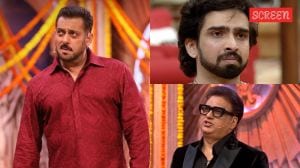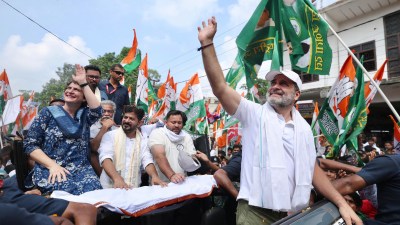Self-regulation by news channels not adequate: Justice Nagarathna
Speaking at the Business Standard Seema Nazareth awards event on Saturday, Justice Nagarathna said that a free press must play a “constructive role” and “attacking the government and constantly playing devil’s advocate for the mere sake of it, must not become its singular objective”.
 The SC, too, had described the freedom of the press as “the most cherished and valued freedom in a democracy; one of the pillars of democracy; the most precious of all freedoms guaranteed under the Constitution”, she said.
The SC, too, had described the freedom of the press as “the most cherished and valued freedom in a democracy; one of the pillars of democracy; the most precious of all freedoms guaranteed under the Constitution”, she said.
The current system of self-regulation being followed by news channels is not adequate as it binds only those broadcasters who are willing to be a part of the association or submit to its jurisdiction, said Supreme Court judge B V Nagarathna while cautioning that any supervision whether under a self-regulatory mechanism or otherwise, “must not effectively turn into control” and “stifle free speech”.
Speaking at the Business Standard Seema Nazareth awards event on Saturday, Justice Nagarathna said that a free press must play a “constructive role” and “attacking the government and constantly playing devil’s advocate for the mere sake of it, must not become its singular objective”.
In her speech titled “A free and balanced press and media: A sentinel of democracy”, Justice Nagaratha said: “Today, news channels are governed by mechanisms of self-regulation. However, it is to be understood that self-regulation alone is not an adequate solution for two reasons: first, because self-regulation binds only those broadcasters who are willing to be a part of the Association or submit to its jurisdiction. Enforceability has become a challenge for self-regulatory bodies. The second challenge stems from the fact that evolving technologies have enabled anyone to write and share content which is accessible by millions. There needs to be some form of regulation, which binds this form of new age ‘journalism’ as well.”
She said that “in any society which aspires for democracy, freedom of speech and expression, which includes the freedom of the press is critical” and that “a free and balanced press is fundamental to the life of an individual in a democratic polity”.
She pointed out even the members of the constituent Assembly while hailing the guarantee of free speech, which was inclusive of the freedom of the press, “did not accept the theory of any fundamental right, including the freedom of the press, as being absolute”.
The SC, too, had described the freedom of the press as “the most cherished and valued freedom in a democracy; one of the pillars of democracy; the most precious of all freedoms guaranteed under the Constitution”, she said.
Further delving into the role of the press, she said that “while it is important that a democratic atmosphere is fostered where the press is capable of discussing and even critiquing government policy or action, attacking the government and constantly playing devil’s advocate for the mere sake of it, must not become the singular objective of a free press. A free press must neither be an ally or an adversary. But a constructive critic”.







